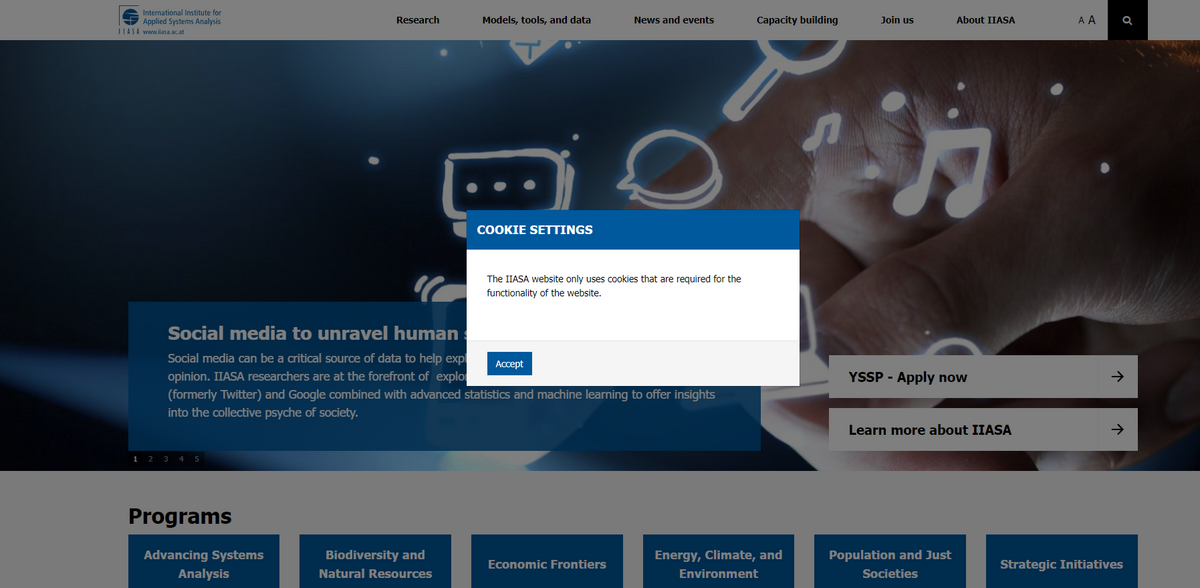Introduction to IIASA’s Research Programs
At the International Institute for Applied Systems Analysis (IIASA), researchers are working hard to tackle some of the biggest challenges facing our planet. They focus on sustainability, climate change, and social equity. This article will look at the various research programs and groups at IIASA, highlighting their goals and contributions to a sustainable future.
Core Objectives of IIASA Research
- Interdisciplinary research addressing global challenges.
- Focus on sustainability and climate change.
- Collaboration with international partners.
- Development of innovative models and data systems.
- Promotion of social equity and well-being.
1. Exploratory Modeling of Human-natural Systems (EM)
This program looks at how humans and nature interact. It uses models to understand these complex systems. By exploring different scenarios, researchers can see how changes in one area affect others. This helps in making better decisions for the environment and society.
2. Novel Data Ecosystems for Sustainability (NODES)
NODES focuses on creating new ways to collect and use data for sustainability. It aims to improve how data is shared and analyzed. This program helps organizations make informed decisions based on reliable information. It also encourages collaboration among different sectors.
3. Agriculture, Forestry, and Ecosystem Services (AFE)
The AFE program studies how agriculture and forestry can be managed sustainably. It looks at the services ecosystems provide, like clean water and biodiversity. By understanding these relationships, researchers can suggest practices that benefit both the environment and local communities.
4. Economics of Equal Life Chances (EELC)
EELC examines how economic policies can promote equality. It focuses on ensuring everyone has the same opportunities in life. This program looks at the impacts of different policies on various social groups. The goal is to create fairer systems that benefit all individuals.
5. Integrated Assessment and Climate Change (IACC)
The IACC program combines knowledge from different fields to assess climate change impacts. It develops models to predict future scenarios and evaluate potential solutions. This research is crucial for informing policymakers about effective strategies to combat climate change.
6. Transformative Institutional and Social Solutions (TISS)
TISS aims to find ways to change institutions and social systems for the better. It focuses on creating solutions that are inclusive and sustainable. By engaging with communities, this program seeks to empower people to take action for their environment and society.
7. Social Cohesion, Health, and Wellbeing (SHAW)
SHAW looks at how social factors affect health and well-being. It studies the connections between community cohesion and individual health outcomes. This program aims to develop strategies that promote healthier, more connected communities.
8. Biodiversity and Land-use Objectives for Optimal Management (BLOOM)
BLOOM focuses on managing land and biodiversity effectively. It aims to balance human needs with environmental conservation. By studying land-use patterns, researchers can recommend practices that protect ecosystems while supporting livelihoods.
9. Just Transitions to Net-Zero Carbon Emissions for All (JustTrans4ALL)
This program is about making sure the transition to a net-zero carbon economy is fair. It looks at how different communities can be supported during this change. The goal is to ensure that no one is left behind in the fight against climate change.
10. Resilience of Ecosystem Services provided by Intact and Sustainably managed Terrestrial ecosystems (RESIST)
RESIST studies how intact ecosystems provide services that benefit society. It focuses on maintaining these ecosystems to ensure their resilience. This research is vital for understanding how to protect natural resources for future generations.
11. Tools for Raising and UnderStanding Trust in Systems Science through Citizen Engagement (TRUST)
TRUST aims to build trust in science through community engagement. It focuses on involving citizens in scientific processes. By fostering dialogue, this program helps bridge the gap between science and society.
12. Keeping Up with IIASA
IIASA is committed to sharing its findings and engaging with the public. The institute regularly updates its website with news, events, and publications. This transparency helps keep stakeholders informed and involved in sustainability efforts.
UN Sustainable Development Goals Linked to IIASA’s Research
- Goal 1: No Poverty
- Goal 2: Zero Hunger
- Goal 3: Good Health and Well-being
- Goal 4: Quality Education
- Goal 10: Reduced Inequalities
- Goal 11: Sustainable Cities and Communities
- Goal 13: Climate Action
- Goal 15: Life on Land
For more information about IIASA and its research programs, visit IIASA Programs.


















